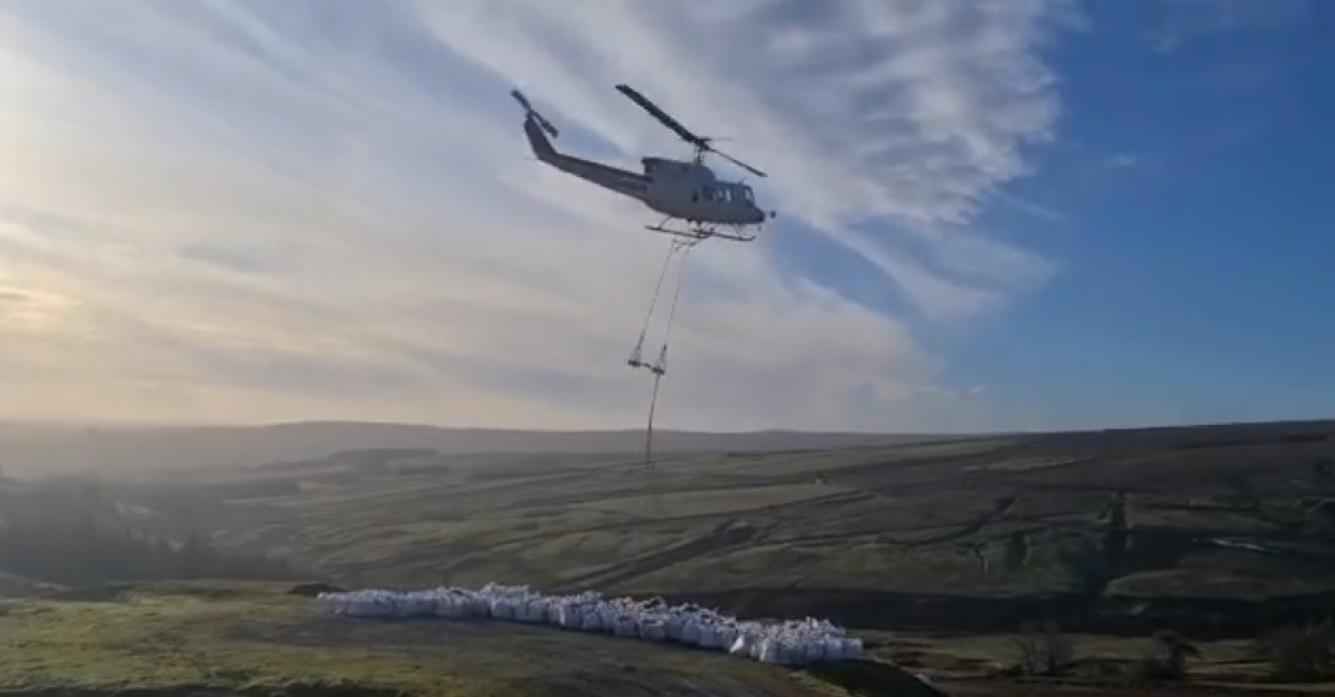
RABY Estates is helping restore peatland by making use of cut heather from moorland sites where burning is not allowed.
Helicopters have been dropping some of the 4,000 bags of heather brash in upper Teesdale.
While restoration burning on dry heath still takes place, heather burning on blanket bog – where the underlying peat is more than 40cm deep – is no longer allowed except in certain circumstances.
Instead, Raby Estates uses restoration cutting with a tractor and flail.
Joe Robinson, estates land agent, said: “The brash created is usually spread evenly over the cut site.
“When the condition of the blanket bog is right, this brash soon begins to degrade and then adds to the peat layer.”
Now Raby is utilising some of the cut heather to regenerate moorland peat sites.
Mr Robinson said: “These donor sites have been carefully selected to provide the right amount of heather and other dwarf shrub brash and seed stock.
“Some sites with a healthy presence of sphagnum moss will also be harvested with the intention that the sphagnum will readily establish on the restoration site too. Establishing sphagnum is a labour-intensive process so, hopefully, this method will work.”
Meanwhile, the estates has been also been using a new method to deal with bracken.
Mr Robinson said: “Historically farmers would harvest it and use it for livestock winter bedding and then a farmyard fertiliser for the land.
“This practice is now rare but the encroaching nature of bracken remains a serious problem. One method is to use a chemical spray applied by helicopter to kill the plant.
“However, Raby has sought to try a new method that avoids chemicals and creates a useful raw material for a peat-free compost product.”
He added: “We have worked with a Cumbrian company who have harvested the bracken using a typical
agricultural process of cutting the bracken and round baling it.
“These bales are then transported to their facilities and turned into compost in a matter of weeks.
“Heather and bracken are both currently an underused resource.
“Continued management of Raby’s moorland and utilising both plants will improve the existing moorland but also reduce the burden on other resources which all factor into the UK’s goal for net-zero, providing a rich environment for wildlife and upland stakeholders.”





